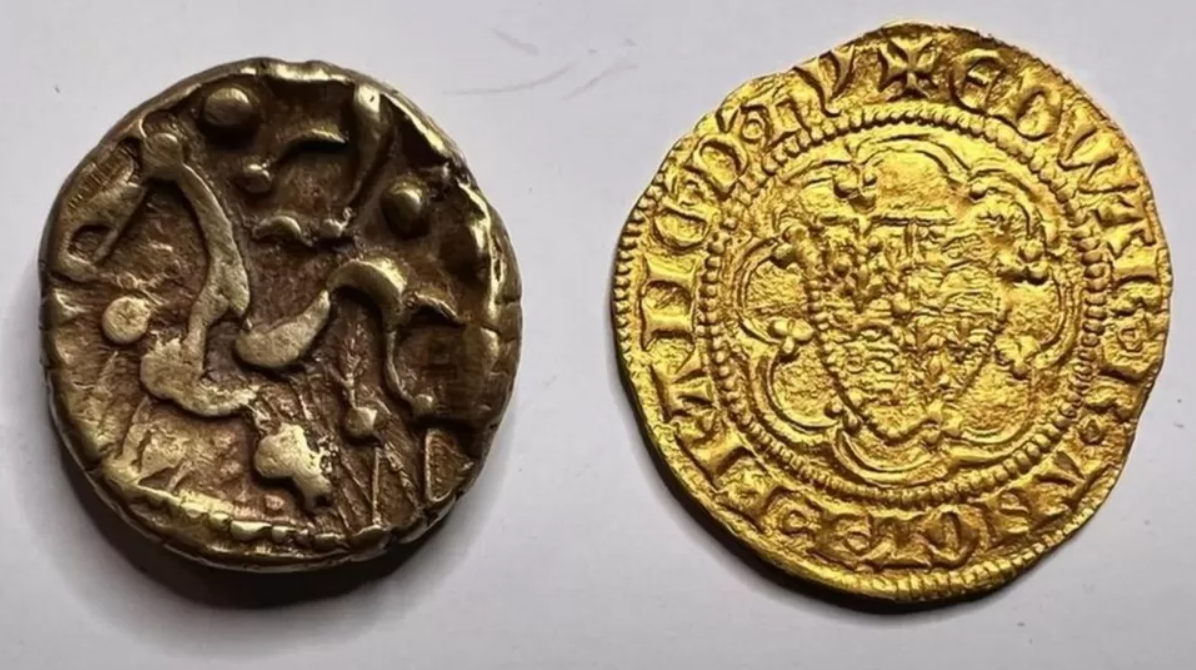Field of Dreams has released valuable treasures and raised money for charity
Categories: Nálezy nejenom s detektorem ve Velké Británii a Irsku
Rare finds - a Celtic statere, Roman coins, a Bronze Age axe and other interesting items - were discovered at a joint detector event in Sudbury, Derbyshire. Not only did the detectorists have a great time, they also contributed to a good cause - detectorists in England tend to charge landowners, who not infrequently donate the proceeds to charity.
The event was organised by the Down To Earth Charity Digs detector group. The 20-odd hectares of the 'field of dreams' yielded, among other items, firearms, a Bronze Age axe, Roman and medieval coins... Just 400 metres apart lay two gold coins - a Celtic staters from 65 BC. and a 14th-century Edward III quarter-noble, 1,500 years younger. Both coins were found by Jasper Hyde of Stone, who described his day as "simply amazing".
"The first few hours were not good," Mr Hyde told the BBC. "So I went to another area of the field. About 30 metres from the car I suddenly had a good signal. I dug it out and there was a glint of gold, a very special find." An hour later he discovered a gold coin of Edward III. A Roman silver coin or a Bronze Age axe was also found in the same field that day. "As far as those days of searching go, it was about as good as it could actually be. Several other amazing finds were unearthed. It was just a field of dreams," said Hyde, who has been a detectorist for about nine months.
He reported both coins to the finds liaison officer (PAS) at the University of Birmingham but was told they would not be classified as treasure. Under the Treasure Act, they would have to be a set - however, the two coins are separated by 1,500 years and clearly could not have been stored together as treasure. The coins can therefore be sold at private auction, but the finder himself would prefer to see them in the Redfern Museum in Uttoxeter: "I am not at all interested in commercial gain. It's about history and the joy of finding things and sharing them. It's hard to describe the joy on people's faces last Sunday when we found it. It's a communal thing, everyone out there looking together," he concluded
According to Roger White of the University of Birmingham, the Celtic coin belonged to the Corieltauvian tribe, whose centre was the Leicester area. "The second coin is a good example of a coin used to drive the economy," said the honorary university fellow. "English coins, especially gold coins, were of high purity, as shown by the colour of this coin. It is also quite novel, so it was not in circulation for very long," he added.
Matt Probart, founder of the Down To Earth Charity Digs Facebook group and organiser of the event, concluded by saying that the joint search had raised more than £6,000 (over £170,000), which will be donated to good causes.
Roman Nemec
Sources: bbc.com, redfernscottage.org



Photo from the joint club event

Jasper Hyde
The article is included in categories: